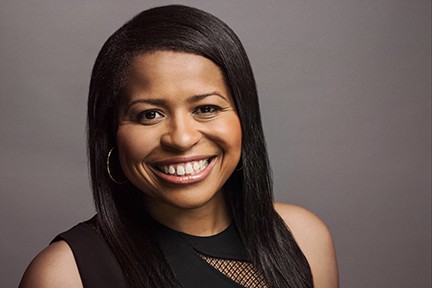By Courtney Kemp
As a leader, for sure, it’s know what you don’t know. When you pretend to be an authority on everything, it forces your subordinates to defer to your opinion — which may not be the most informed in the room. If you have humility concerning the gaps in your experience or ability, it allows others to shine. You can remain in authority and foster an open, honest environment, if there’s no punishment for saying “I don’t know.”
I first became a showrunner at 36 years old. I had no experience doing this job, which is as complicated and multi-faceted as anything I’d ever tried. In short, networks hire a writer — by nature an isolated, neurotic creature — and ask them to lead a company of hundreds of people. For someone bent over a laptop talking to herself most of the time, stepping into a leadership role wasn’t easy. I was lucky though: I was very clear about my vision for the show. I knew how to describe what I wanted, and I knew how to be definitive about the look, the sound, and the style of the show. I had no idea how to realize that vision — beyond the scripts, of course. I know fashion to some extent, and beauty because of my Condé Nast background, but other than that, I’d never built a set or built a budget for a series. I didn’t know how many extras we’d need to fill a nightclub or what a “model rate” was, and why different extras cost different amounts per hour. I didn’t know how to build a shooting schedule, or why to choose one camera over another.
But I could hire people who knew the answers to all of those questions — and more importantly — I could ask them. In public. Openly. I could say — I want you to do your job, and I want to watch you do it, so I can learn from you. I knew I was young and inexperienced. I knew I had a lot to learn very quickly — one’s first year showrunning is a trial by fire. But even though the people around me in production were more experienced than I — it was everyone’s first year on Power. And I was setting the tone then for what we have now — a supportive environment where everyone is encouraged to contribute their best experience and creativity. I’m a leader, not a dictator (not usually.) One of my leadership heroes is former NFL Coach Herm Edwards, who had a saying: “Know Your Role, and Do Your Job.” If everyone knows the role they play, and they do their job — executing it well and with enthusiasm — it comes together successfully every time. My role is to write well, to ask questions, and to make decisions once I’m well informed. In my fourth season of the show, every day I am confronted with something I don’t know. And even if I’ve seen something like it before, or even if people expect me to know the answer, I’ve had enough good instruction in humility to take a pause and ask for guidance. Knowing what I don’t know helps me every day. That’s the best piece of advice I ever got.
Originally published at medium.com


